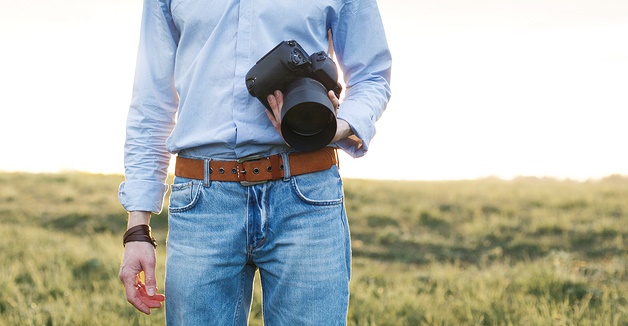Adam Remsen is an attorney in Memphis and he has put together an article on photographers copyrights in the US, over at PetaPixel.
He wants to make it clear that none of this information should be considered legal advice, and you should always consult a lawyer if you run into an issue with some of your images.
However, this is basic information that will help all photographers determine how or where their photos can be used (if at all), if they haven’t specifically given permission to do so.
U.S. copyright law has been federal law since 1978, and applies in all 50 states. In the U.S., copyright is automatically created in a work when the work is created. You don’t have to register your copyright with the U.S. Copyright Office, don’t have to fill out any type of paperwork at all. If you draw a little squiggle with a pen on a piece of paper, you own the copyright in that squiggle. If you accidentally press the shutter on your camera and get one of those blurry throwaway shots, you instantly, automatically own the copyright in that image. No one can legally reproduce that photo without your permission.
The main component of copyright is the right to copy. You have the right to make copies of your photo, and to sell them. You also have the right to choose who else may make copies of the photo. You can charge people for the right to make copies of your photo, which is called “licensing” the work. You can also sue someone for copyright infringement if they make copies of your photo without a license.
Under the law, a right is a possession, having its own value. What that means in practice is that you not only own the copyright in your works, but you can sell that right if you want. Selling a copyright is different from licensing: When you license your work to someone else, you still own the right. But when you sell the copyright, you’re giving up your right to copy the work in exchange for something (usually money).
In everyday speech, we may say someone “copies” a William Eggleston photo if they take a picture of a red ceiling, but under the law, that’s not a copy. To copy a photo, in legal terms, is to make a reproduction of the actual photo, usually by mechanical or electronic means, such as a copier or a computer. Taking inspiration from a photo is not the same as copying it, and as long as no one is going to mistake your version for the real thing, such imitation is usually legal. There may be similarities between two works, but that doesn’t constitute copying, or copyright infringement. For someone to be “copying” your photo in the legal sense of the word, they must be reproducing at least part of your actual photo.
It’s important to understand that an idea cannot be copyrighted; only a specific expression of the idea can be copyrighted. For example, a photo you take of your feet is copyrighted, but the idea of “a photo of the photographer’s feet” cannot be copyrighted.
For a photo created in 1978 or later, the copyright lasts for the life of the photographer plus 70 years. For photos created before 1923, copyright has expired and these photos are in the public domain. For photos created between 1923 and 1977, it’s even more complicated. Most of them have a copyright term of 95 years from the date of publication. But for any photos you create today, the copyright will last for 70 years after you die.
Read the full article over at PetaPixel.
Source: PetaPixel

